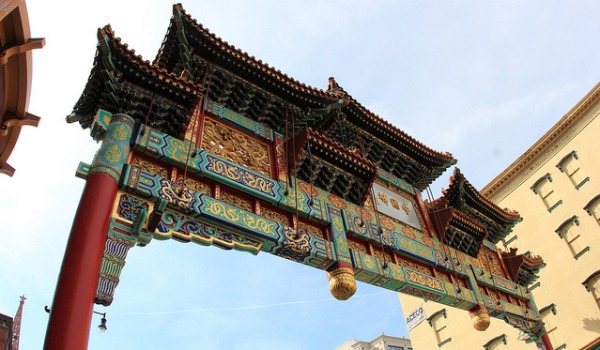D.C.'s Wholly Disappointing Chinese Food Scene
Americanized Chinese food in the nation's capitol is not just an example of bad cuisine, but bad cultural discourse
I thought I'd switch gears from my usual "serious" subjects on the Chinese political economy and ruminate a bit on a favorite topic of mine: food. As an aspiring foodie, I usually go out of my way to seek new haunts and palate-stimulating experiences. And I am certainly not the first to bemoan the dearth of spectacular and reasonably affordable ethnic dining options in the district. (Related note on affordability: the ballyhooed food truck phenomenon has theoretically expanded the supply of lunch options, but somehow has had little effect on price. Still $10 for a meal out of a food truck? Shouldn't they be selling fish tacos for $3?) After having just traipsed from Shanghai to Hong Kong to Beijing, the utter mediocrity of Chinese food in the District seems especially pronounced (I'm not talking VA or MD here, but strictly DC). From your Northeastern cuisine and Beijing roast duck to fresh sauteed sea urchins in southern China, I got more diversity in those two weeks than I've had in years in DC.
OK, so DC is no Beijing or Hong Kong, nor is it New York or San Francisco or Los Angeles. But there's no obvious reason that the city, accommodating a steady stream of cosmopolitan and international population, should be content dwelling in a cesspool of Chinese/ethnic food mediocrity. Demand seems strong. Many reasons have been proffered for why quality Chinese/Asian food is so limited, including immigrants who have been priced out of the district by skyrocketing rents, leading to an exodus toward strip malls in northern Virginia or Rockville. And what remain are quiet gems like Great Wall Szechuan House in Logan Circle, a nondescript hole-in-the-wall that makes one mean Sichuan doubled-cooked pork. (I also highly recommend the ma la hotpot there in the winter if you want a true spicy jolt. You will sweat. Must get a party of six and request beforehand so they can purchase the ingredients.)
And shouldn't a Chinatown actually contain, um, Chinese restaurants, instead of an amusement park of characteristic Americana like Ruby Tuesday, Fuddruckers, and Hooters? Ah, but you see, Hooters' name is translated into Chinese characters, so it's authentic! (To be fair, there is also a Hooters near my hotel in Beijing.) I'm just guessing, but if there was to be a contest for "Most Pathetic Chinatowns in the US", DC's would rank toward the top. Perhaps instead of having that honorific and stylized Chinese gate, more thought should be put into attracting decent Chinese food back into the city. Sure, one could ask why I don't just trek to NoVa or Maryland for better Chinese options--Tyler Cowen's notable ethnic dining guide is full of suggestions in the greater DC area. But as someone who doesn't own a vehicle and prefer walking and public transport, well, Falls Church just isn't accessible.
I think DC's Chinatown has the potential to become a foodie's paradise, offering diverse and cheap food. Here's an idea raised by a friend: Apparently the Thai government/embassy used to (still does?) subsidize Thai restaurants in DC as a way to promote Thai culture--hence the proliferation of pun-laden Thai joints (Thaiphoon, Thaitanic, and so on). In similar fashion, couldn't the Chinese government subsidize authentic Chinese restaurants in DC as part of its "soft power" strategy. I can think of few countries where food is so central to its culture. And I can think of no other country like the US in which Chinese food is woven into the cultural fabric. Americans order Chinese takeout for Christmas, and the Chinese don't even believe in Jesus!
Perhaps next time Hu Jintao comes to DC, instead of pumping money into another Confucius Institute, he should open a Beijing Dadong Roast Duck Restaurant, but with US standards of service. Just a fanciful thought. If others have suggestions on how to improve the DC food scene, let me know.
Damien Ma is a fellow at the Paulson Institute, where he focuses on investment and policy programs, and on the Institute's research and think-tank activities. Previously, he was a lead China analyst at Eurasia Group, a political risk research and advisory firm.
